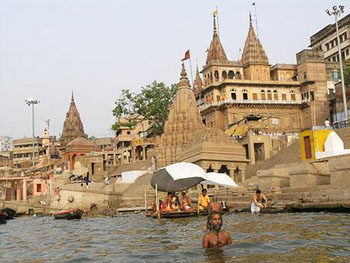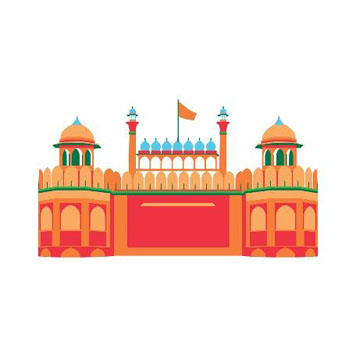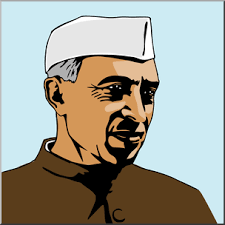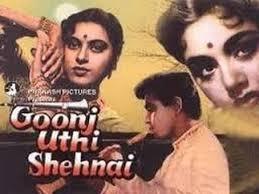THE SHEHNAI OF BISMILLAH KHAN : BLOG 3
Good morning boys!
Thank you for logging in. Today we will be starting the second part of the unit 'The Sound of music"
Kindly mark your attendance here:
STUDENTS YOU WILL BE ABLE TO:
1. Comprehend the text and outline the theme of the chapter
2 Use new words in writing skills.
Let us continue the explanation:
Open your Beehive Reader to Page 23
Paragraphs 5 to 13:
THE STORY IS IN BLACK
EXPLANATION IN RED
WORD MEANINGS IN BLUE
The young boy took to music early in life.
At the age of three when his mother took him to his maternal uncle’s house in Benaras (now Varanasi), Bismillah was fascinated watching his uncles practice the shehnai.
When Bismillah Khan ji was just 3 years’ old, his mother took him to her parents’ house – to his maternal uncles. (Maternal uncles mean the lineage on one’s mother’s side.) They lived in Benaras (Benaras is today called Varanasi.) And when Bismillah Khan saw his maternal uncles play the shehnai, he was attracted towards it and he also wanted to learn playing it.
Soon Bismillah started accompanying his uncle, Ali Bux, to the Vishnu temple of Benaras where Bux was employed to play the shehnai.
Bismillah Khan started going with his uncle, Ali Bux to the Vishnu temple in Benaras. Ali Bux was on a duty to play the shehnai at the Vishnu temple of Benaras.
Ali Bux would play the shehnai and Bismillah would sit captivated for hours on end.
Captivated: attracted
on end: for a very long time without stopping, continuously
When Bismillah Khan saw his uncle, Ali Bux play the shehnai, he would get attracted towards it that he would sit there for hours, listening to him play the shehnai.
Slowly, he started getting lessons in playing the instrument and would sit practicing throughout the day.
Gradually Bismillah Khan also started learning playing the shehnai and he would practice throughout the day. He never got tired, he was so captivated by the shehnai.
For years to come the temple of Balaji and Mangala Maiya and the banks of the Ganga became the young apprentice’s favourite haunts where he could practice in solitude.
apprentice: trainee
haunt: place you like come, where you like to visit many times a day
solitude: being alone, single
For many years, Utsad Bismillah Khan remained in Benaras. He would visit the temple of Balaji, temple of Managala Maiya and would remain on the
bank of river Ganga, where he would practice playing the shehnai all by himself.

The flowing waters of the Ganga inspired him to improvise and invent ragas that were earlier considered to be beyond the range of the shehnai.
Here we come to know about the talent of Ustaad Bismillah Khan. He was so inspired and motivated by the river Ganga, it provoked him to improve his performance and he also invented many ragas that were considered impossible to be produced by a shehnai. Ustaad Bismillah Khan worked hard, and invented different sounds with the shehnai.
At the age of 14, Bismillah accompanied his uncle to the Allahabad Music Conference.
When Bismillah Khan was 14 years of age, he accompanied his maternal uncle, Ali Bux to the Allahabad Music Conference.
At the end of his recital, Ustaad Faiyaz Khan patted the young boy’s back and said, “Work hard and you shall make it.”
recital: performance
Ustaad Faiyaz Khan (he was a renowned classical vocalist) was impressed by his performance and said that if he would work hard like that, he would make a name in the field of music.
With the opening of the All India Radio in Lucknow in 1938 came Bismillah’s big break. He soon became an often-heard shehnai player on radio.
When the All India Radio started it’s a Radio station at Lucknow, Ustaad Bismillah Khan started performing from there. Often, his shehnai performance would be on air.
When India gained independence on 15 August 1947, Bismillah Khan became the first Indian to greet the nation with his shehnai.
Ustaad Bismillah Khan was the first Indian to greet the entire nation through his shehnai. He played the shehnai from the Red Fort on this memorable occasion.


He poured his heart out into Raag Kafi from the Red Fort to an audience which included Pandit Jawaharlal Nehru, who later gave his famous ‘Tryst with Destiny’ speech.
The Raag that was played by Ustaad Bismillah Khan on the occasion of the Independence of India was Raag Kafi. He played it from the Red Fort. After his performance, the first Prime Minister of India, Pandit Jawaharlal Nehru gave his famous speech - ‘Tryst with Destiny’.
Bismillah Khan has given many memorable performances both in India and abroad. His first trip abroad was to Afghanistan where King Zahir Shah was so taken in by the maestro that he gifted him priceless Persian carpets and other souvenirs.
taken in by: attracted or charmed by
souvenirs: things given in memory of a place, person or event
Bismillah Khan gave many performances in India and abroad. Some of them are memorable like the one at Afghanistan. The King of Afghanistan, King Zahir Shah really liked Bismillah Khan’s performance and he gifted him many things which were made in Afghanistan like Persian carpets, etc. so that Ustaad Bismillah Khan would remember his first visit abroad that was to Afghanistan.
The King of Afghanistan was not the only one to be fascinated with Bismillah’s music. Film director Vijay Bhatt was so impressed after hearing Bismillah play at a festival that he named a film after the instrument called Gunj Uthi Shehnai.
There were many other people also who were attracted to his shehnai’s music. ‘Gunj Uthi Shehnai’ was a name of a Hindi movie. It was made by Vijay Bhatt. He was a film director and he really liked the sound of the shehnai played by Bismillah Khan and that is why he named his movie as Gunj Uthi Shehnai.
The film was a hit, and one of Bismillah Khan’s compositions, “Dil ka khilona hai toot gaya ...,” turned out to be a nationwide chartbuster!
chartbuster: record breaker
There was a song in movie Gunj Uthi Shehnai named “Dil ka khilona hai toot gaya….”. It was composed by Ustaad Bismillah Khan and became a chartbuster, it brook all record.

Despite this huge success in the celluloid world, Bismillah Khan’s ventures in film music were limited to two: Vijay Bhatt’s Gunj Uthi Shehnai and Vikram Srinivas’s Kannada venture, Sanadhi Apanna.
celluloid: old fashioned way of referring to films
venture: project that often involves risk, something which has a lot of risk
Although this song was a chartbuster, Bismillah Khan got a lot of success in this film, but he composed music for only two films. The names of the movies were - Gunj Uthi Shehnai made by Vijay Bhatt and a Kannada Movie made by Vikram Srinivas called ‘Sanadhi Apanna’.
“I just can’t come to terms with the artificiality and glamour of the film world,” he says with emphasis
Emphasis: to lay stress on something
Ustaad Bismillah khan would say that he did not like the artificial world of films and the glamour that was there in the film world. That was why he did not compose music for many movies.
Awards and recognition came thick and fast.
thick and fast: he got a lot of awards and was recognized at many places
Bismillah Khan got a lot of recognition and was honoured with awards.
Bismillah Khan became the first Indian to be invited to perform at the prestigious Lincoln Centre Hall in the United States of America. He also took part in the World Exposition in Montreal, in the Cannes Art Festival and in the Osaka Trade Fair.
Bismillah Khan ji performed all over the world. He performed in United States of America at the Lincoln Centre Hall, he performed in Montreal, Australia in the World Exposition, he performed at the Cannes Art Festival and he also performed in Japan at the Osaka Trade Fair.
So well known did he become internationally that an auditorium in Teheran was named after him — Tahar Mosiquee Ustaad Bismillah Khan.
Teheran is located in Iran. Bismillah Khan was so famous all over the world that in Teheran, an auditorium has been named after him.
National awards like the Padmashri, the Padma Bhushan and the Padma Vibhushan were conferred on him.
conferred: given, usually an award or a degree
Ustaad Bismillah Khan has been awarded with these national awards.
In 2001, Ustaad Bismillah Khan was awarded India’s highest civilian award, the Bharat Ratna.
With the coveted award resting on his chest and his eyes glinting with rare happiness he said, “All I would like to say is: Teach your children music, this is Hindustan’s richest tradition; even the West is now coming to learn our music.’’
coveted: much desired
When Ustaad Bismillah Khan received India’s highest civilian award - Bharat Ratna in the year 2001, his eyes were shining. He was very happy because his hard work had been recognized and he gave an important message to the country. He told all the Indians to teach music to their children because music is the richest tradition of India. He said that even the western countries wanted to learn India’s music.
In spite of having travelled all over the world — Khansaab as he is fondly called — is exceedingly fond of Banaras and Dumraon and they remain for him the most wonderful towns of the world.
Although Ustaad Bismillah Khan ji had travelled all over the world, he was given so much respect and recognition, he remained rooted. Benaras, where he learned music and Dumraon, where he was born and brought up were the two most wonderful towns of the world for him. He was so down to earth that although he had travelled all over the world, still he was attached to his birth place.
A student of his once wanted him to head a shehnai school in the U.S.A., and the student promised to recreate the atmosphere of Banaras by replicating the temples there. But Khansaab asked him if he would be able to transport River Ganga as well.
replicating: making a copy of something
There was a student of Ustaad Bismillah Khan and he wanted that Ustaad Bismillah Khan should set up a shehnai school in USA. He promised that he would recreate the temple of Benaras in America for Ustaad ji as he would miss it. Now Ustaad Bismillah Khan was attached to River Ganga also. So, he asked his student that would he transport the River Ganga also to America. So, he wanted to say that he could not leave India – He was attached not only to the temples of Benaras but also to the holy river Ganga.
Later he is remembered to have said, “That is why whenever I am in a foreign country, I keep yearning to see Hindustan. While in Mumbai, I think of only Banaras and the holy Ganga. And while in Banaras, I miss the unique mattha of Dumraon.”
yearning – longing, having a desire for something
Ustaad Bismillah Khan said that whenever he visited any foreign country, he longed to see India. He wanted to return to India. And then he says that when he was in India, in Mumbai, he yearned to visit Benaras and the Ganga River. And when he was in Benaras, he missed his birth place Dumraon and the Mattha where he sang chaita and was rewarded with the laddu of 1.25 kg weight by the Maharaja.
Ustaad Bismillah Khan’s life is a perfect example of the rich, cultural heritage of India, one that effortlessly accepts that a devout Muslim like him can very naturally play the shehnai every morning at the Kashi Vishwanath temple.
devout: believing strongly in a religion and obeying its laws and following its practices
Here the writer says that Ustaad Bismillah Khan was a perfect example of the rich cultural heritage of India. His work was beyond the religion barriers. Although he was a strict Muslim, he followed the Muslim laws but every morning he would play the shehnai at the Kashi Vishwanath Temple, which was a Hindu temple. This shows that he did not have the barriers of religion in his mind. He was a true Indian. He considered music to be India’s richest cultural heritage.
Ustaad Bismillah Khan passed away on 21 August 2006 at the age of ninety after a prolonged illness. He was given a state funeral and the Government of India declared one day of national mourning.
Ustaad Bismillah Khan had been ill for a long time and he died on 21 August 2006 at the age of ninety. The entire country mourned the death of the legendary musician. There was a holiday for one day and he was given a state funeral.
That's all for today!!
Classwork- Explanation of the lesson
Homework-Word meanings in literature copies (given in blue)
That's all for today!!
Classwork- Explanation of the lesson
Homework-Word meanings in literature copies (given in blue)






Good morning ma'am.
ReplyDeleteFor the spin and yarn competition .
1)Ojas Khanna
2)Hrishit Deb
3)Arnav Trivedi
Ma'am our group
DeleteAdd 2 more students
DeleteMa'am all the boys we asked said no.
ReplyDeleteok...that means two of you will have to do the part twice
DeleteOk ma’am
ReplyDeleteExcuse me ma’am What is SPIN AND YARN competition?
ReplyDelete